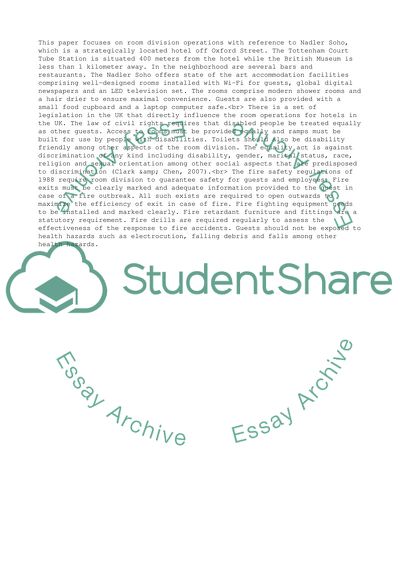Cite this document
(Regulations Governing Room Division Operations in the UK Coursework - 1, n.d.)
Regulations Governing Room Division Operations in the UK Coursework - 1. Retrieved from https://studentshare.org/management/1635549-rooms-division
Regulations Governing Room Division Operations in the UK Coursework - 1. Retrieved from https://studentshare.org/management/1635549-rooms-division
(Regulations Governing Room Division Operations in the UK Coursework - 1)
Regulations Governing Room Division Operations in the UK Coursework - 1. https://studentshare.org/management/1635549-rooms-division.
Regulations Governing Room Division Operations in the UK Coursework - 1. https://studentshare.org/management/1635549-rooms-division.
“Regulations Governing Room Division Operations in the UK Coursework - 1”, n.d. https://studentshare.org/management/1635549-rooms-division.


